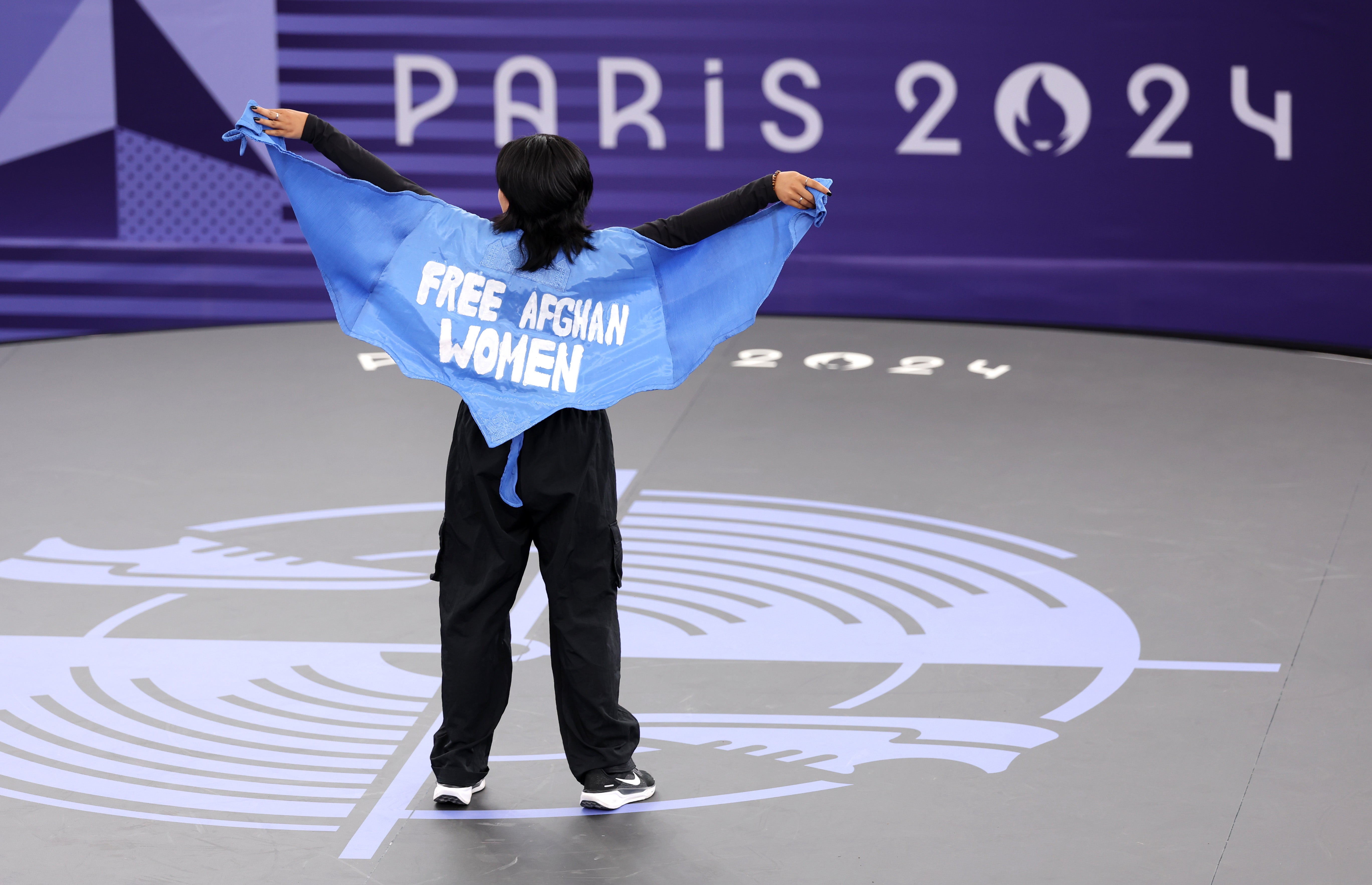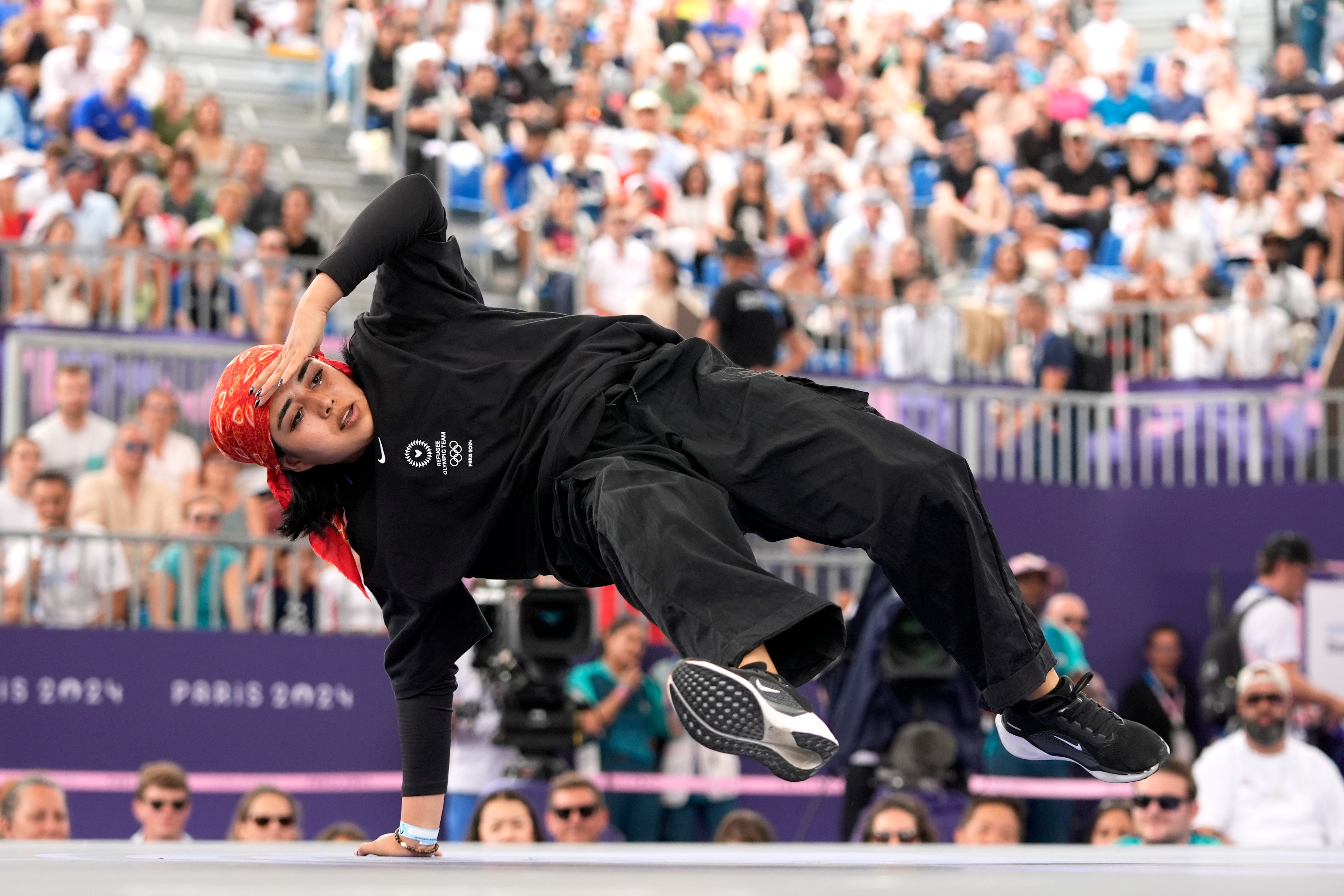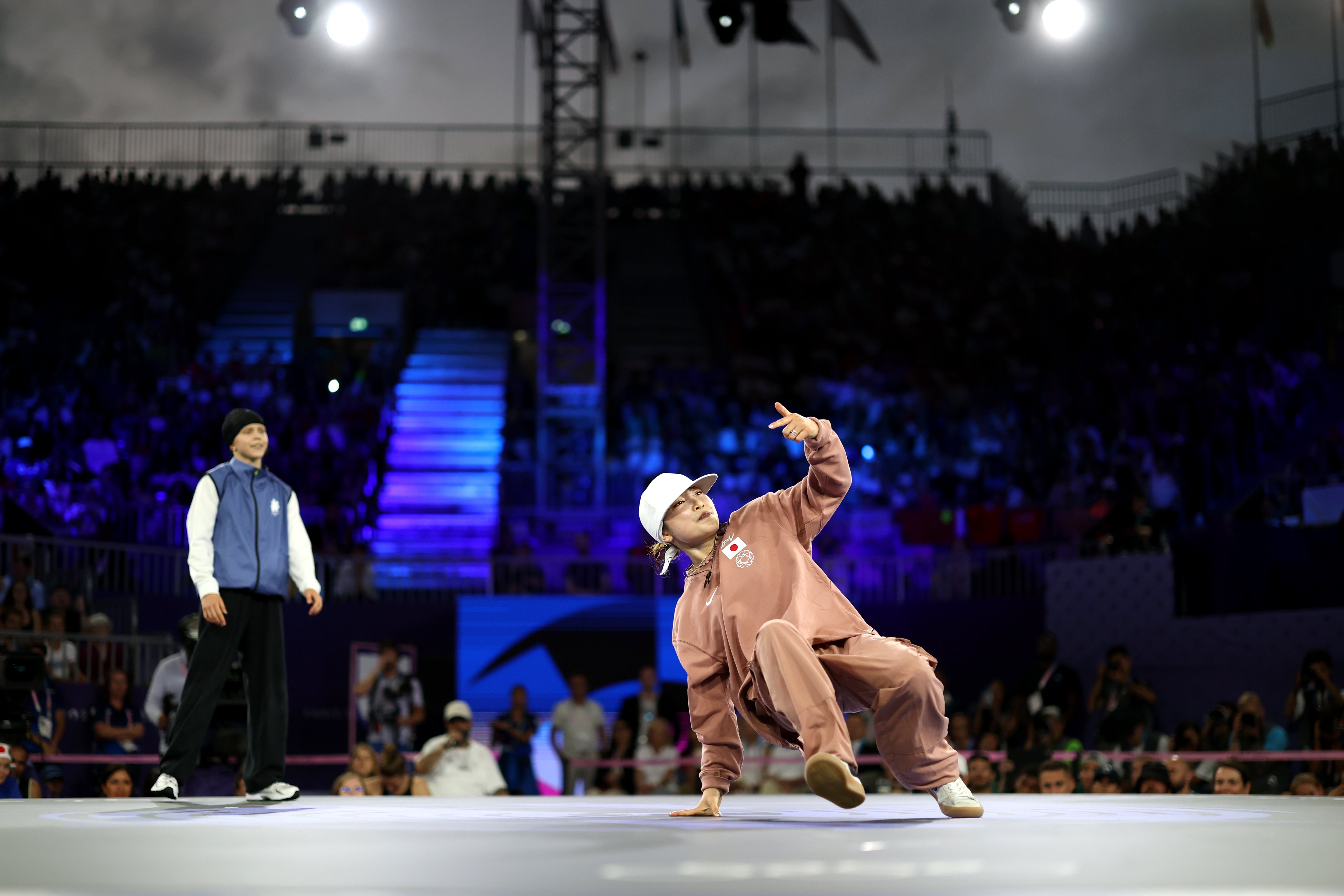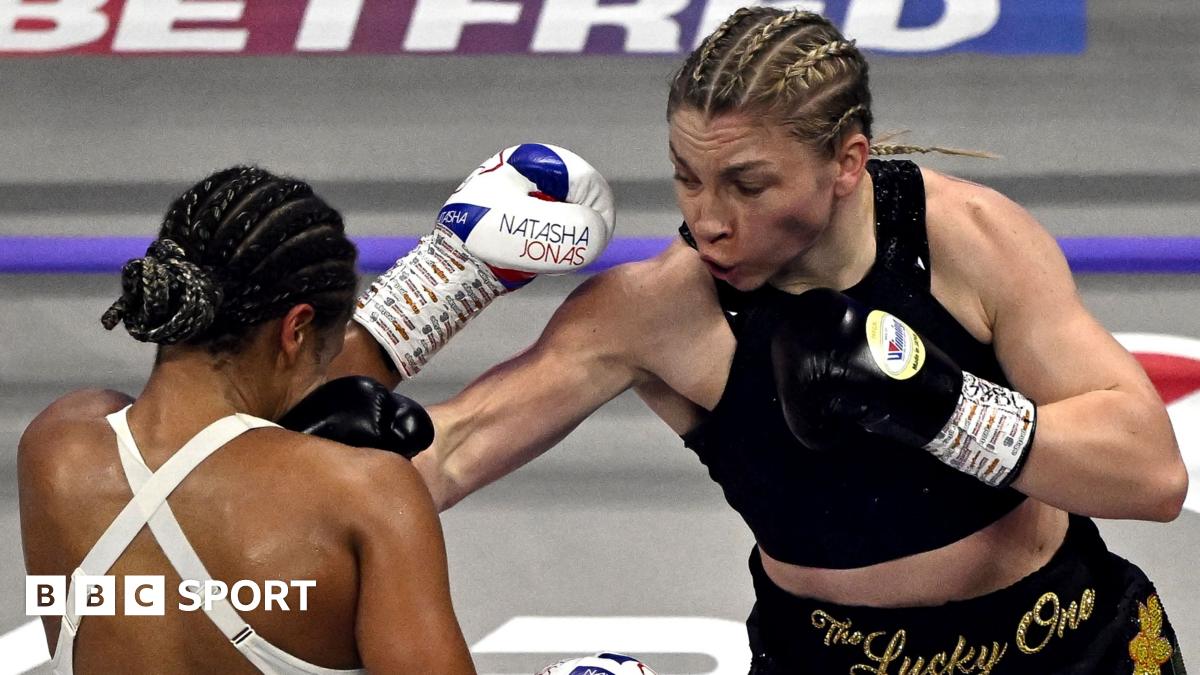It was one of the most anticipated events of Paris 2024 and breaking’s debut did not disappoint – providing spectacle, a political statement and no shortage of questions.
The only new sport at these Olympics, breaking was never going to achieve the near-universal approval that greeted sport climbing’s introduction three years ago in Tokyo – but it hit the headlines from the start.
In the very first Olympic breaking battle, B-girl India, of the Netherlands, took on B-Girl Manizha of the IOC Refugee team.
Manizha Talash, to give her full name, has a remarkable story. In 2021 she fled her native Afghanistan where she had discovered breaking, after the Taliban returned to power.
At the time she left, Talash was the only female breaker at the ‘Superiors Crew’ in Kabul.
Under the Taliban, Afghan women have effectively been banned from sporting activities. Talash had to leave and travelled with her little brother to Spain.
Simply by being in Paris, Talash is making a statement to the Taliban back in Afghanistan. She then made another.
As she prepared for her battle, B-girl Manizha removed her jumper to reveal a cape saying: ‘Free Afghan Women’. Her Dutch opponent raised her hands and applauded.

According to IOC regulations, ‘no kind of demonstration or political, religious or racial propaganda is permitted in any Olympic sites, venues or other areas’.
Following the incident, the World Dance Sport Federation, who oversee the sport, said: “The Chair of the IOC Disciplinary Commission will consider the case in relation to the IOC’s Athlete Expression Guidelines.”
Whether Talash faces further punishment or not, she had made a point.
“I wanted to show people what is possible,” she said.
Following that battle, the sport took over. Breaking was born in the south Bronx in New York at the parties of DJ Kool Herc, one of the founders of the hip hop movement. The dancers at those evenings were known as his break-boys and break-girls. Now, those competing on the Olympic stage are referred to as B-girls and B-boys.
The crowd that packed into the arena at Place de la Concorde were clearly enraptured by the show, some of those watching on TV perhaps a little less so.

Breaking is eminently watchable but working out who is most deserving of gold is a different question entirely. The Urban Sports Park in La Concorde has hosted BMX freestyle, skateboarding and now breaking. While each has been spectacular and drawn in a young crowd, those in the stands have often been left baffled at scoring decisions.
That is inevitable in subjective sports, but breaking might be the trickiest of all for the layperson.
This is a non-contact combat sport where competitors, taunt and sledge before pulling out top rocks, windmills, freezes and power moves with the athletic grace of a gymnastics floor routine.
All to the backdrop of a DJ and pair of MCs warming up the crowd.
The drama as the scoring of each round is revealed at the end was gripping. Judges crowned a winner in each of three rounds in the knockout stages, marking on technique, vocabulary (variety of moves), execution, performativity, musicality and originality.
When all was said and done, it was B-girl Ami – Ami Yuasa, of Japan, who got the better of Lithuania’s 17-year-old B-girl Nicka – Dominika Banevic in the final to become the first-ever breaking gold medallist. B-girl 671 of China took bronze.
B-girl Nicka said after taking silver: “I think the Olympics need breaking. It is like a breath of fresh air. The whole world saw how wonderful breaking is.”

Fresh air certainly, but contrast to Toby Roberts’ success up at Le Bourget earlier in the day, and it is easier to see how climbing is reflected in the Olympic motto – ‘Faster, Higher, Stronger – Together’. Breaking fits into the latter description, arguably none of the original three.
As well as excitement, breaking also attracted ridicule. The performance of B-girl Raygun, a 36-year-old from Sydney, did the rounds on social media and looked anything but Olympic in standard.
That raises the question of its future. Breaking had already been dropped from the Los Angeles 2028 programme, with the American organisers bringing back baseball and softball, while adding cricket, squash, lacrosse and flag football.
Organisers have greater opportunity than ever to influence the Olympic programme. That will increase the number of sports that are one and done – as was the case for karate in Tokyo.
Breaking is certainly a spectacle, and its Olympic debut was a success. And yet, it would not be a shock if Saturday’s B-boys brought the curtain down on a 48-hour dalliance on the Olympic stage.
Watch every moment of Olympic Games Paris 2024 live only on discovery+, the streaming home of the Olympics














